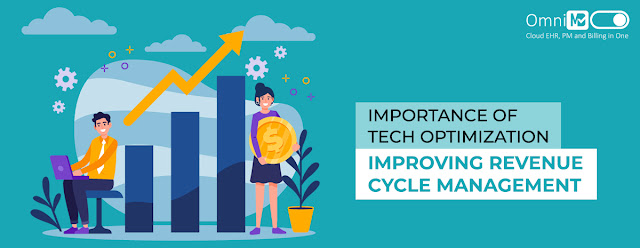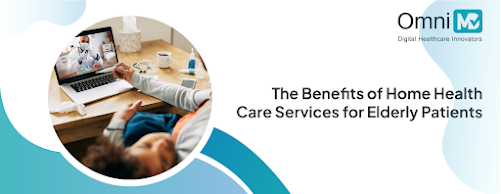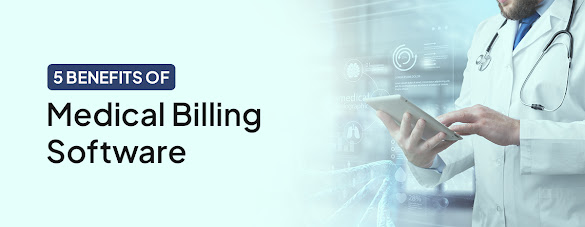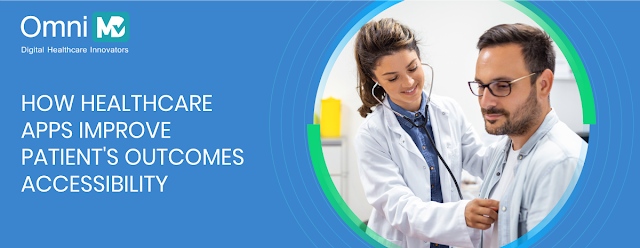Importance of Tech Optimization in Improving Revenue Cycle Management
There are street cars optimized across various performance characteristics but not excelling in any one. Then there are racing cars with fine-tuned engines, suspension, and handling to excel in performance. This analogy can be carried forward to healthcare services IT solutions and their key performance metrics such as patient services and revenue generation. Given that technology forms the underpinnings of most operations of hospitals, their performance depends to a large extent on the optimization and use of various technologies like RCM software, EHR systems, and medical appointment software, to name a few. Each can work in isolation and give results but optimization can result in resonance that will amplify outcomes. Take a look at the avenues of tech optimization to boost revenue cycle management.
Identifying the pivot
The RCM process comprises several steps and the RCM software must work alongside other software if it is not installed as an integrated RCM solution covering EHR and medical appointment software as well as financial accounting packages. In order to optimize RCM you would first need to identify and focus on a pivot around which the other tech can be optimized. It is for hospital management and for doctors to decide on a core pivot, possibly in consultation with revenue cycle management consultants and RCM vendors as to which aspect should form the pivot. The RCM system makes for a good starting point since it incorporates vital processes from start to finish. However, there may still be other issues like interoperability.
Interoperability
Most healthcare services do not start with a bang; they grow and, along the way, incorporate solutions such as patient medical records and EHR, financial packages, hospital information systems, and EDI systems. One must also consider porting to clearing houses for insurance claims being part of the overall hospital revenue cycle process. These are implemented over time possibly through different vendors and work in isolation. Different operators may handle different software and solutions and the lack of connection between all these could translate to operational inefficiencies that, in turn, affect revenue flows. Even the RCM software cannot deliver the best when working as a standalone unit. It pays to integrate all these standalone solutions and get them to be interoperable, possibly with the help of revenue cycle management vendors and RCM consultants working in tandem. Should these diverse systems be patched together or should you scrap them all and go in for an entirely new suite of comprehensive custom hospital RCM solution that works in the cloud?
A single dashboard RCM solution that ties in other packages like appointments and financials as well as tracking remote workers and giving them access as well as giving access to patients certainly results in reduced errors, faster processing, and efficiency. Possibly RCM vendors could set up robotic automation, scripts, and web apps to reduce task switching and improve productivity which will in turn boost revenues.
The end goal is to make processes convenient for doctors, administrators, and patients and to offer accuracy as well as seamless automated integration. Optimization, you will find, is an incremental and iterative process across the various modules. RCM experts can help continue this iterative and agile fine-tuning process.
Data analytics, speed, and transparency
The sub-components of RCM processes are interdependent and contribute to the iterative fine-tuning process to boost RCM. Once systems are integrated you get access to cohesive data that lends itself to better analytics. Analytics can show up insights for improvements that can when implemented, speed up various processes, especially that of debt collection, and also contribute to transparency. Speeding up iterations based on feedback leads to further improvements and so on in the RCM process.
The patient side
Patients are the primary source of revenue. Optimizing the patient side of operations improves the user experience. Tech optimization can be implemented across areas such as incorporating convenient payment gateways, permitting patients to choose pricing and payment plans, access to support from other sources, and knowing exactly how much they will pay for services. Healthcare services that incorporate these optimizations in the RCM process benefit from loyalty, referrals, faster and timely payments, and excellent relationships.
Remote workers
Post the pandemic and given the rise of telehealth and cloud-based healthcare services, remote workers are just as important as in-house employees are to the hospital revenue management processes. In fact, according to a survey conducted by McKinsey & Company, telehealth utilization has increased by 38 times compared to the pre-pandemic situation. Hence, it is essential to keep track of them and facilitate their work to boost revenue cycles.
Data based decisions
Tech optimization and integration of digital technologies in use in healthcare leads to the synchronization of data and improves its quality based on which the right business decisions can be made. Data and analytics show problems clearly, which is the first step to solutions. Incorporating AI and ML could further automate intelligent analytics and give predictive capabilities in decision-making. Here again, you could get RCM experts to update existing RCM software with these inclusions.
To sum it up, tech optimization of the RCM process, given the current scenario needs to address core issues such as:
- Revamp or modification of the RCM process and also the software
- Fine-tune the RCM billing system and tie it together with lateral and vertical solutions like medical records and insurance clearing houses.
- Fine-tune the existing RCM system to maximize ROI
- Incorporate analytics, AI/ML, and predictive capabilities to empower intelligent decision-making.
- Keep measuring gains such as successful claim submission and payment rates and speed of cash flow as well as reduction of outstanding.
Optimization of a hospital RCM also requires the right mindset and the need for appointing an administrator to oversee the process, one who is conversant with technologies and can work in collaboration with RCM experts to take it forward. For startups, it is relatively straightforward: they can engage RCM consultants to get off on the right foot but for existing healthcare services that currently use diverse solutions it takes a little bit more time and effort but it is well worth it.
Boost hospital revenue cycle growth by advancing overall efficiency through tech optimization. Call in OmniMD experts for tech optimization and see the results that ensue.




Comments
Post a Comment